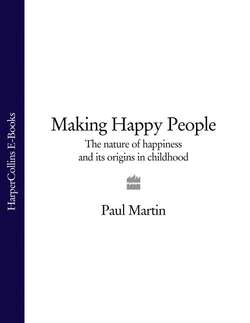Читать книгу Making Happy People: The nature of happiness and its origins in childhood - Paul Martin - Страница 22
3. Freedom from excessive anxiety
ОглавлениеWe saw in chapter 2 that happiness is a mixture of three basic elements: pleasure, the absence of displeasure, and satisfaction. Being prey to frequent unpleasant emotions can erode happiness. And the unpleasant emotion that probably does most to erode happiness among the largest number of people is anxiety – that nagging sense that something might go wrong. Research confirms that anxious individuals who frequently worry about themselves or their loved ones tend to be less happy. Conversely, happy people typically experience low levels of anxiety and are less inclined to feel anxious in any given situation.
In addition to being an everyday source of displeasure, anxiety erodes happiness in other ways. Someone who continually feels anxious will find it harder to focus on whatever they are doing, or to pay full attention to their personal relationships. Anxiety fosters a distracted self-consciousness that eats away at other sources of happiness.
Some people are consistently more prone than others to be anxious, worried and emotionally changeable; they are inclined to fret even when objectively there is little to fret about. Psychologists describe these natural-born worriers as neurotic. Not surprisingly, individuals who score high on measures of neuroticism are found to be less happy. Indeed, neuroticism is one of the stronger predictors of unhappiness.
